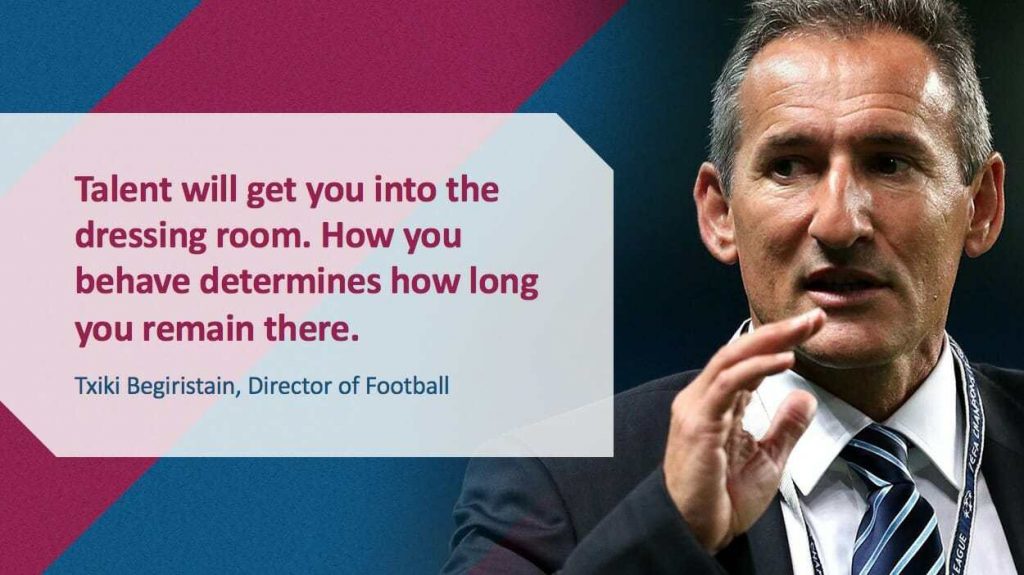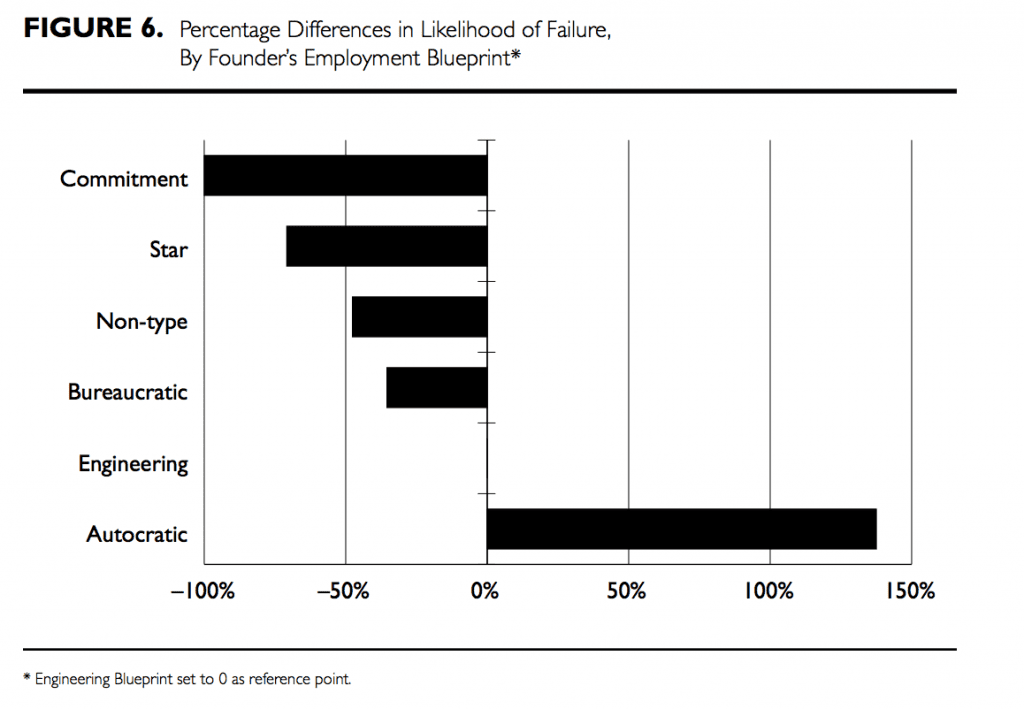I attended the latest ProductTank Manchester with Damian Hughes. At the time, I tweeted that the session was great, that the content was surprisingly actionable and the supporting material engaging. ProductTank have now released the session as a video as well as a long write-up. I’ve taken the chance to watch the talk again and write my own observations in this post.
Company culture matters
Damian uses FC Barcelona (colloquially Barça) as an example of an organisation which deliberately designs and manages culture. He told us he’s been granted access to management and players for years, collating his findings in his new book: The Barcelona Way: Unlocking the DNA of a Winning Culture and that evening’s presentation.
Damian makes 2 core arguments:
- Culture type is proven to have a positive effect on organisational performance.
From the chart below, it is clear that a Commitment Culture is the most beneficial, while Autocratic organisations are damaged the most. - A Commitment Culture can be deliberately designed and executed using the Barca framework, inspired by FC Barça.
The BARCA framework
Big Picture
Behaviours determine culture, therefore organisational DNA will be described as behaviours rather than principles or values. This is a very important distinction.

The Book recommends that teams should agree on a maximum of three behaviours. For Barça, they are humility, hard work, and team first.
Arc of Change
Change is always hardest in the middle. This can be demoralising, so prepare by understanding the path change will take and manage risk proactively. Techniques like pre-mortem will help. The key message is that the Arc of Change must be deliberately managed.
Recurring Systems
Brains use shortcuts to understand and react to the world. It’s the Fast in Thinking Fast and Slow and Habits in The 7 Habits of Highly Effective People. For the culture to establish itself, we must internalise those behaviours we espouse, and to do that we may use shortcuts or recipes such as Barcelona’s five-second rule: press intensely for 5 seconds to win the ball back if it was lost before falling back to standard defensive formation. This embodies 2 of their deliberate behaviours: hard work and team first.
Culture Architects
Human social constructs tend towards hierarchy. Most people are happy to follow, a few people emerge as leaders or role models. In a deliberate culture environment, we must make sure those leaders display the right behaviours and intervene when others don’t. The presentation contained a great example of Barça’s captains demonstrating humility by moderating their own behaviour and chastising others who boasted excessively after scoring a goal. Brilliant examples which made me proud to be a lifelong Barça fan.
Authentic Leadership
There are 2 apparently contradictory pieces of data in this section.
- Any leader without bulletproof integrity will destroy your efforts to create a commitment culture.
- In sports (and by implication in any other complex human organisation) any leader has, at most, a 10% impact on total performance. The figure comes from a study on head coaches at football clubs.
The contradiction is only apparent: it is very hard to improve performance, particularly where one meets the limits of physical endurance and sporting ability. However, any deliberately-built culture will start to crumble the moment it stops being tended to. Leadership must be authentic about demonstrating each and every element of the culture: if people get promoted not because of their behaviour but in spite of it, the culture has no future.
This makes me think of culture as a garden: it has to be maintained, carefully but constantly, lest the weeds take over and ruin years of hard work.
A commitment culture is the fruit of careful, deliberate long-term work
Culture change doesn’t happen overnight, it is hard and may be quite painful. Think about the leaders in your organisation, the ones that are recognised as high performers today. How many would have to go if you were to strictly adopt Authentic Leadership? Could your organisation see past the immediate business results and far enough into the future?
The Barca framework provides some brilliant insight but it is in no way a quick fix. It is, however, surprisingly relatable to all levels of the organisation thanks to the universal appeal of football, and can be adopted relatively easily: pick your 3 behaviours, empower a handful of culture architects, then use the 5 components to ensure they drive behaviour and decisions in your business, initially through recurring systems and later having been internalised. It will take a very long time and you’ll have to be prepared to address moments of pain through the arc of change, but success is also long-lasting and oh-so-sweet.




Leave a Reply